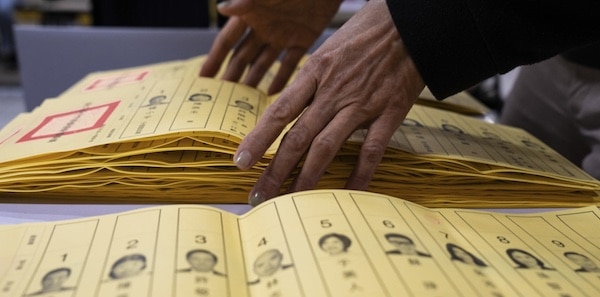It is almost unanimous, then. Most Western media have given us the lowdown.
The people of Taiwan have “rebuffed” (Reuters), “dismissed” (CNN) and “defied” (Financial Times, Wall Street Journal, France 24, NBC) the Chinese government and ruling Communist Party.
Saturday’s presidential and legislative elections in Taiwan were won by Lai Ching-te and his belligerent right-wing Democratic Progressive Party (DPP). This victory, we are informed, was secured in the teeth of Chinese “threats” (Guardian, France 24, Arab News, CNN, etc), “meddling” (Washington Post), “disinformation” (Guardian, BBC, CNN, France 24) and “fake news” (Politico, New York Times).
The choice of the Taiwan electorate has, apparently, “angered” (BBC, Sky News, Japan Today) Beijing.
Naturally, a host of “think tanks,” politicians and commentators around the world have been peddling the same storyline, amplifying and regurgitating one another’s claims in the process.
However, closer inspection reveals the reality. The people of Taiwan did not vote in their majority for the new president-elect Lai. He won 40 per cent of the popular vote (down from the party’s 57 per cent four years ago).
Beijing’s preferred candidate, Hou Yu-ih of the Kuomintang (Nationalist Party of China), came second with 33 per cent (down from 39) and Ko Wen-je of the new “centre-left” Taiwan People’s Party (TPP) third with 26 per cent.
Had coalition talks between the Kuomintang and TPP not broken down, a joint candidate would almost certainly have won the presidential election with a comfortable majority.
As it was, the DPP lost its majority in the Taiwan legislative assembly on Saturday. The biggest party is now the Kuomintang (up from 38 seats to 52), ahead of the DPP (down 10 to 51) and the TPP (8).
The origins of the Kuomintang lie in Chiang Kai-shek’s Nationalist Party of China, defeated by the Communists and driven onto the Chinese island of Taiwan (formerly Formosa) in 1949. Historically, the Kuomintang’s aim has been to reunite China under nationalist leadership. The party’s recent election manifesto continues to call its island refuge by its constitutional name:
the Republic of China.
However, realistic Kuomintang politicians don’t expect the overthrow of China’s communists anytime soon and now pursue the aim of constitutional reconciliation–vague in outline–and closer economic and cultural relations with mainland China.
The TPP stands for “Taiwanese sovereignty and cross-Straits peace,” opposing provocative steps towards independence while also supporting a “formidable deterrent force” such as that provided by U.S. funds and armaments. Its election platform also promised public healthcare, progressive taxation (to penalise “the 1 per cent”) and anti-corruption measures.
Significantly, the recent election campaign revealed widespread public concern about Taiwan’s economy, future energy supplies, social inequality and standards in public life. Among the young in particular, these issues are at least as important as Taiwan’s constitutional future.
The lower turnout last Saturday, despite the hyped-up “threat” from China on many fronts, reflected people’s increased disillusionment with Taiwan’s political establishment.
After 75 years, the People’s Republic of China refuses to recognise the legitimacy of Taiwan and therefore of its political system. After all, the island and its mostly settler population are as Chinese as the Isle of Wight is English.
The PRC government has made clear its disapproval of Hou as a “troublemaker.”
But far from being “angry” with the election results, there will be quiet satisfaction in Beijing with the decline in the DPP vote and the changed composition of the assembly in Taipei.
Rather, Chinese anger is focused on the continuing, blatant U.S. interference in Chinese affairs and on the U.S. military build-up–in alliance with Britain, Australia, Japan and South Korea–by land, sea and air around China.

